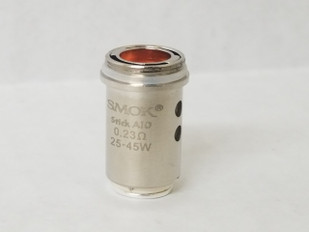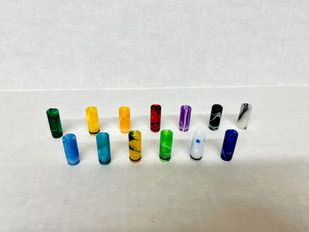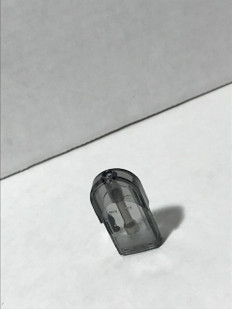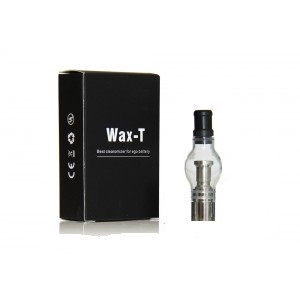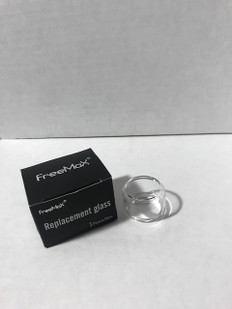- Home
- The Vape Mall Blog
- Could CBD Help Those Dealing with Atopic Dermatitis (Eczema)?
Could CBD Help Those Dealing with Atopic Dermatitis (Eczema)?
Posted by on

About 35 million Americans have atopic dermatitis, which is more commonly known as eczema. This skin condition can be both incredibly uncomfortable and embarrassing, as it affects one’s appearance, while causing intense itchiness of the skin. However, there might be hope thanks to numerous findings regarding CBD’s use for treating it.
What is Atopic Dermatitis (Eczema)?
Atopic Dermatitis (Eczema) is a chronic condition in which the skin becomes red, itchy, dry and flaky. It tends to develop in the form of patches that can occur anywhere on the body. It can stay centralized to one specific area of the body, such as the hands, or exist throughout the body. [Source]
Eczema, being chronic, can be a lifelong condition. However, many children who have eczema eventually stop having symptoms once they reach adulthood. Eczema tends to occur in flareups, meaning that the virus can be seemingly dormant for long periods of time before becoming symptomatic again. Triggers of flareups include cold weather, seasonal allergies, stress, hormonal changes, dietary changes, and infections.
Ultimately, eczema is an inflammatory condition, as the symptoms that affect the skin are caused by inflammation. Many people who have eczema also suffer from either asthma or hay fever.
What Causes Eczema?
Eczema is an inflammatory condition, which is often, in fact, a symptom of a deeper inflammatory issue in the body. The immune system is responsible for the body’s inflammatory response, and so eczema is an example of the immune system mistakenly attacking cells of the skin that are, in fact, healthy. There is no known exact cause for eczema, but it’s believed that those with weaker immune systems are more prone to developing it. Some underlying issues that seem to trigger the development of eczema include inflammatory conditions of the digestive tract, as well as allergies, autoimmune conditions, and severe stress episodes, which all affect the immune system.
What are the Symptoms of Eczema?
The most common symptoms of eczema are:
- Patches of red, dry skin that flake easily and feel itchy.
- The skin may also feel tight and irritated due to the fact that eczema causes the affected areas of the skin to dry.
- The skin can become so dry that it cracks and bleeds, and may also become bumpy and scaly, even possibly leaking liquid.
Can Eczema Be Cured?
Currently, there is no known cure for eczema. Some people, however, have found that making major lifestyle changes has led to the cessation of their symptoms. These lifestyle changes usually involve cutting out certain foods that cause allergic reactions, reducing stress levels, taking supplements to strengthen the immune system and quitting smoking, which weakens the body’s immune system.
Can Eczema Be Treated?
While there is no known cure for eczema, there are various treatment options. Most of these treatments address the physical symptoms, which means that they may not be addressing any underlying issues that are causing the widespread inflammation of the skin.
The most common forms of eczema treatment are topical. A doctor will perform an examination to make sure that the condition is, in fact, eczema and prescribe a topical treatment intended to reduce inflammation of the skin. More severe conditions may require additional forms of treatment including oral or injectable anti-inflammatories. Steroid creams are also commonly used.
Can CBD Help with Eczema?
Before we get into the specifics, let’s make sure that our readers have a full understanding of what CBD is, and why it may be a unique option compared to other treatments that are available.
Cannabidiol is the dominant chemical compound in the hemp plant. It’s a cannabinoid, which is a type of compound that works with the body’s endocannabinoid system. What cannabinoids do is bind with cannabinoid receptors that are present in every system of the body. This binding process allows the endocannabinoid system to regulate bodily processes that contribute to our overall wellbeing. In other words, the endocannabinoid system’s job is to ensure that every function of the body is operating at its maximum level, and to do this, it needs cannabinoids.
There are cannabinoid receptors in the skin, where eczema symptoms present themselves, and cannabinoid receptors in the immune system, which is responsible for the inflammatory response. Therefore, researchers have discovered that CBD may be able to regulate these functions of the body to minimize eczema.
- Study #1: Found that applying CBD directly to the skin can treat eczema as well as other inflammatory conditions that affect the skin. CBD has potent anti-inflammatory activity.
- Study #2: Found that cannabidiol may be able to regulate immune function, which means that it could potentially address the immune issues that are responsible for eczema.
- Study #3: We said earlier that stress and hormonal issues may also contribute to the development of eczema. CBD might be able to regulate neurotransmitter activity in the brain, which means it may be capable of balancing hormones while minimizing stress to decrease both the likelihood of developing eczema, and the instances of flareups caused by these known culprits.
How Can I Take CBD Specifically for Eczema?
Now that you know what CBD might be able to do for your eczema, let’s break down the key things to keep in mind when taking it specifically for this purpose.
Tip #1: Choose a Topical
Topical CBD products provide concentrated amounts of hemp directly to the skin, feeding the skin’s cannabinoid receptors in a localized way.
Tip #2: Tell Your Doctor
Speak with your doctor first and then from there, plan on taking CBD for your eczema if given the permission to do so. Make sure that they know your medical history as well as any medications that you may be on.
Tip #3: Find the Ideal Concentration
The key to having success with CBD is choosing a concentration appropriate for your needs. A higher milligram strength than average may be best for this type of condition.
Tip #4: Be Consistent
Being consistent is important, because the cannabinoid receptors need a steady and regular supply of cannabinoids to fully regulate the processes involved in keeping the skin as healthy as possible. Use CBD daily for the best results.
Tip #5: Consider an Internal Method
Consider also taking an internal method to address underlying inflammation in the system, and issues with the immune system.
Don’t Be Afraid to Show Off Your Amazing Skin
CBD is a natural and holistic plant product that’s being used for a variety of purposes. Now, you can see why so many people are turning to CBD for Atopic Dermatitis. Talk to your doctor about giving cannabidiol a try if you’re dealing with this frustrating condition.
 Loading... Please wait...
Loading... Please wait...



